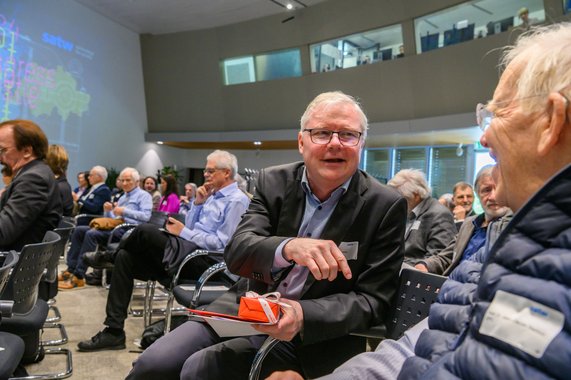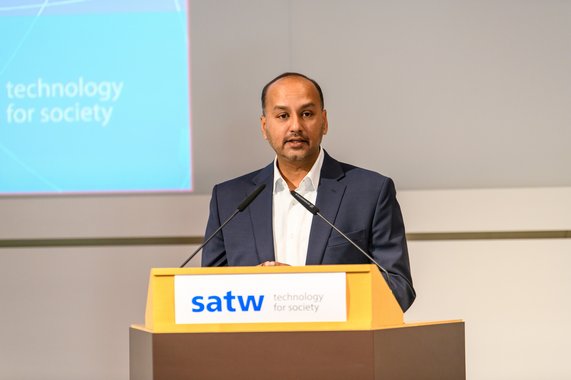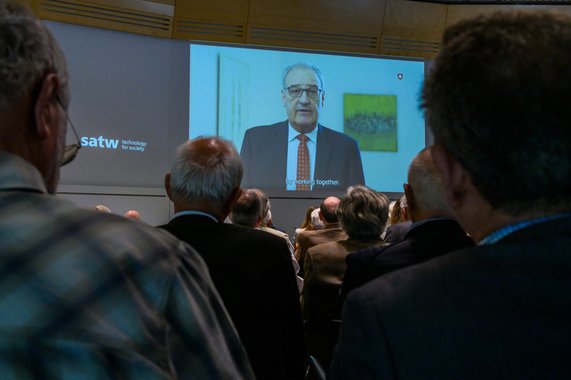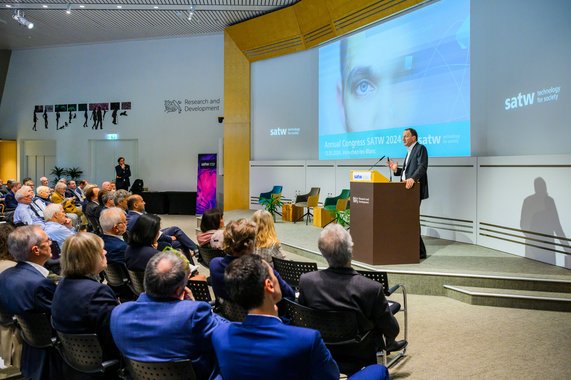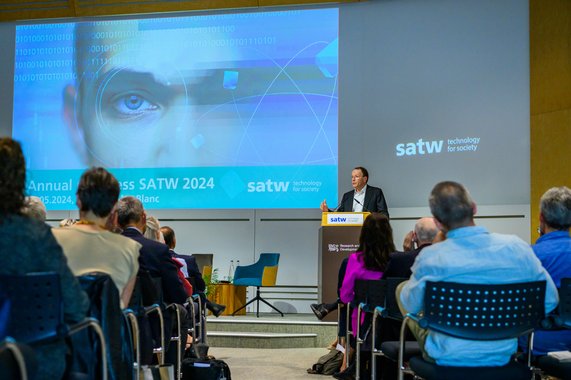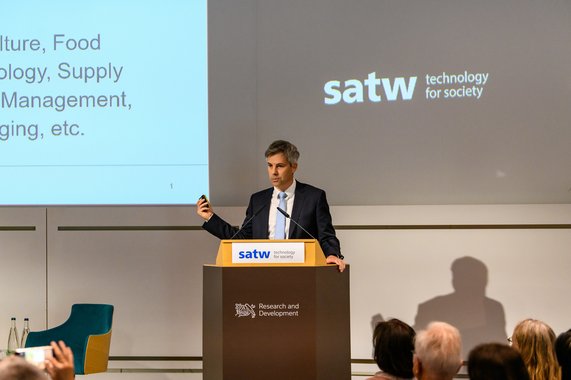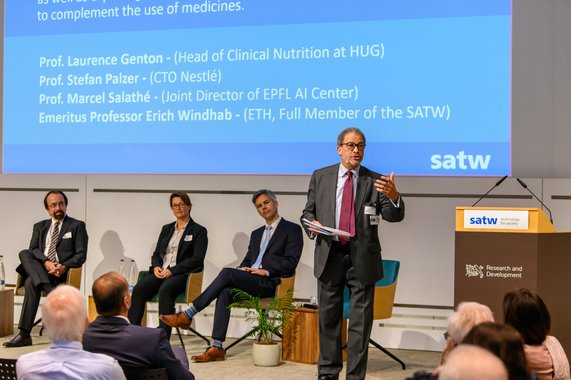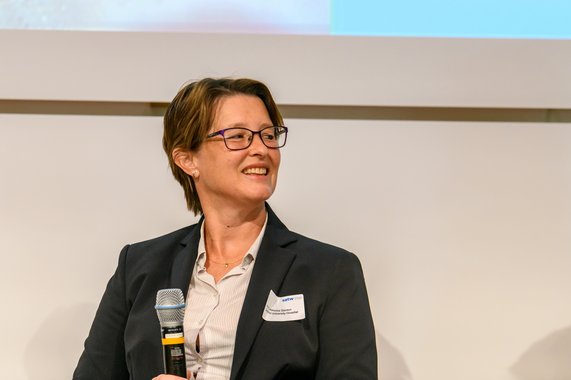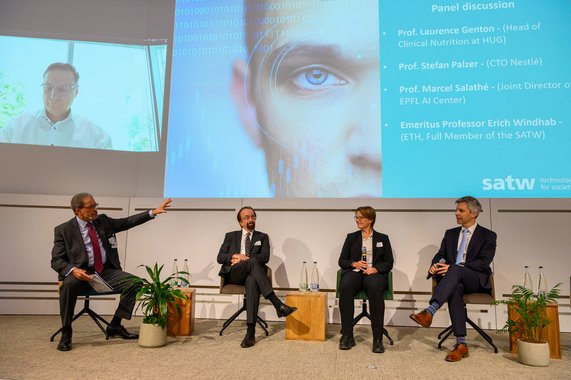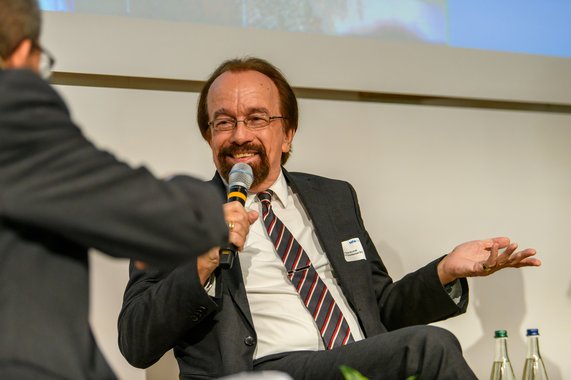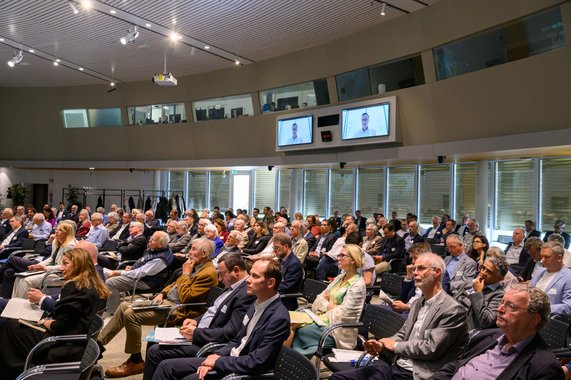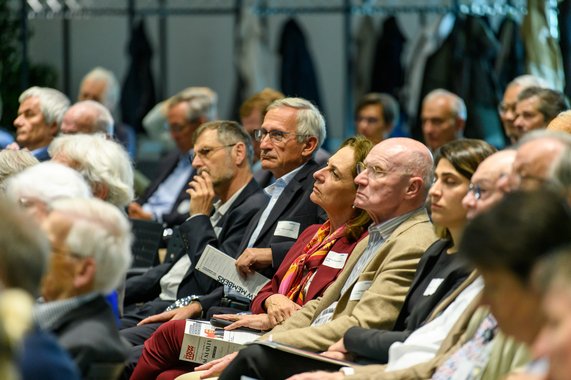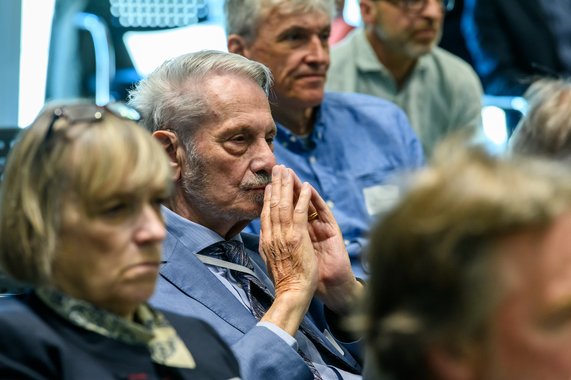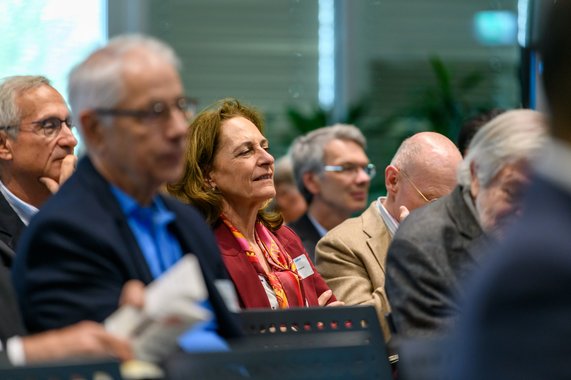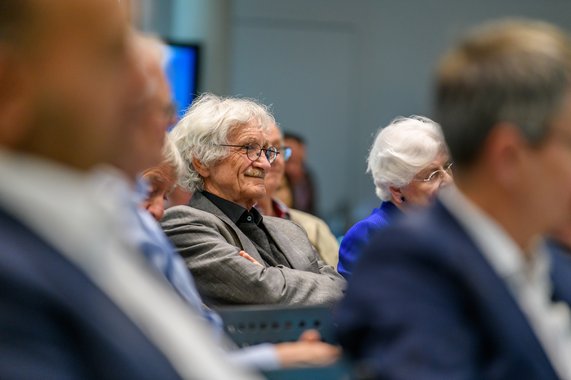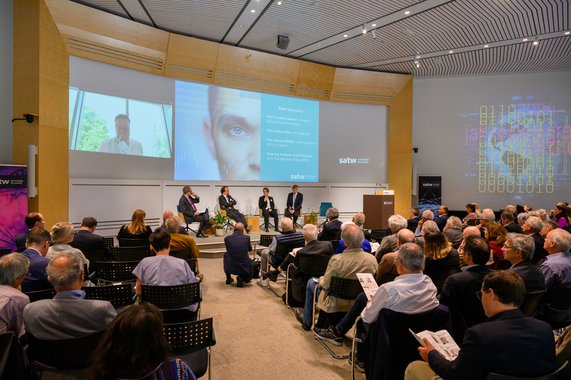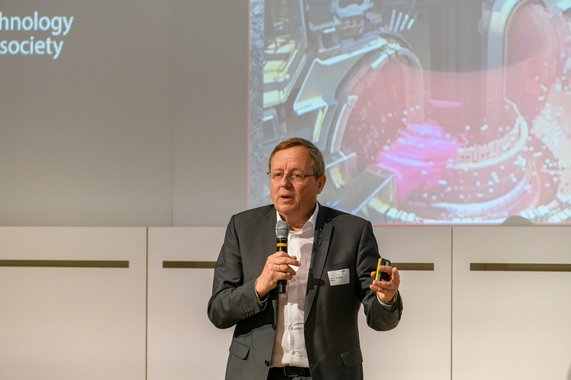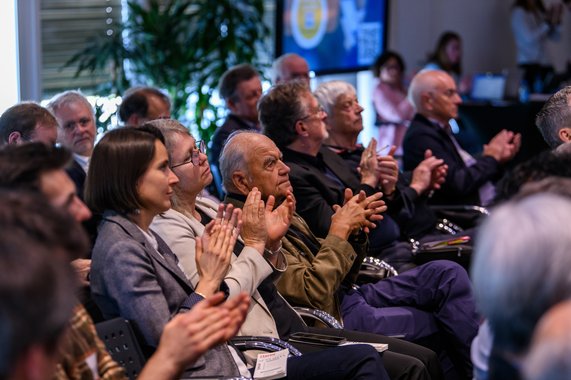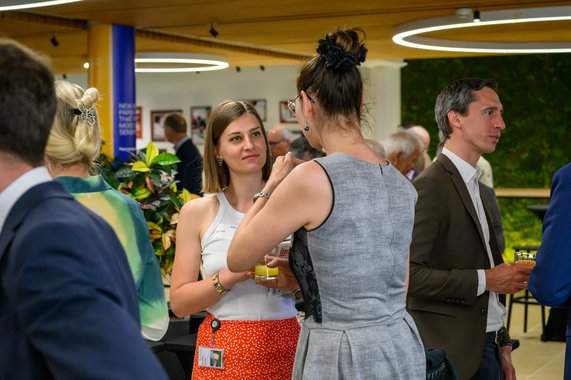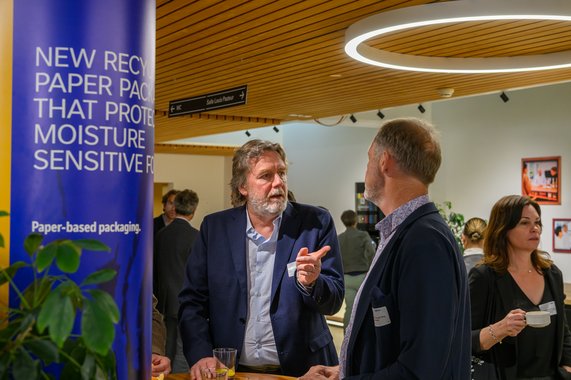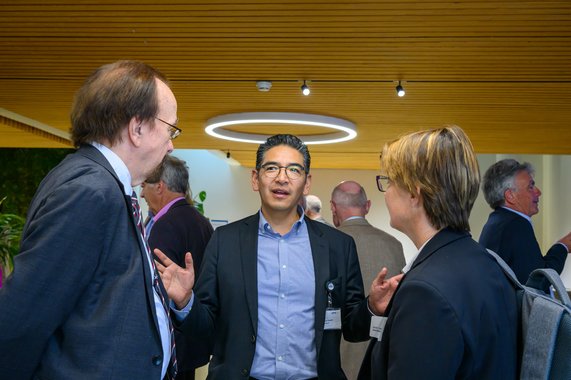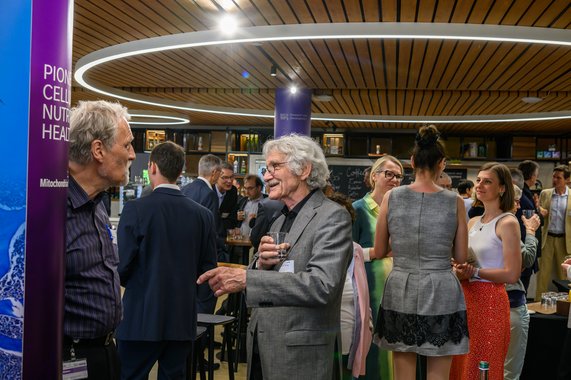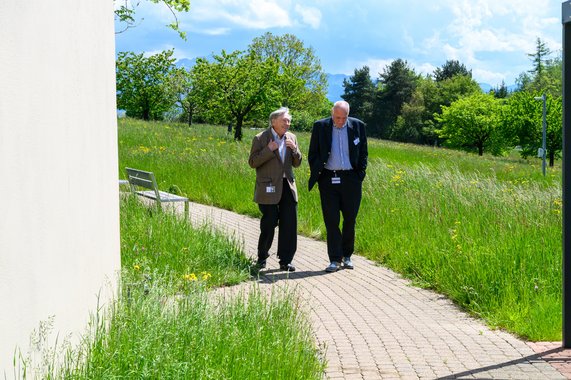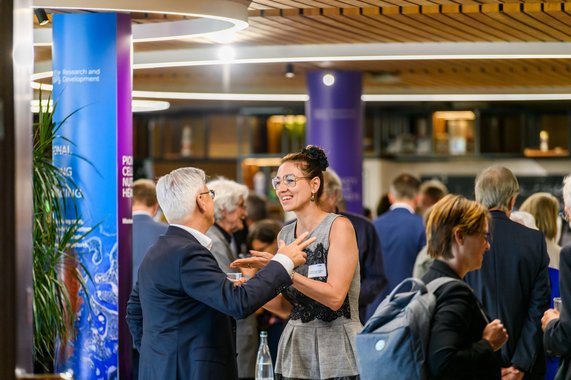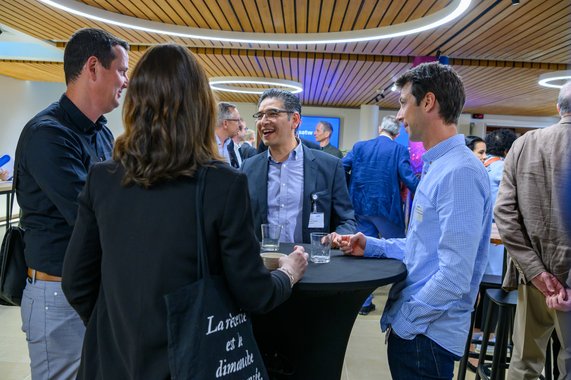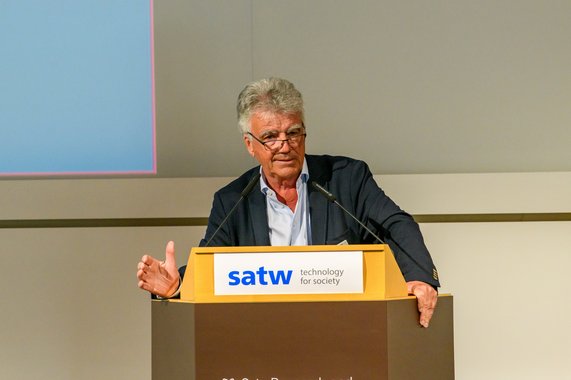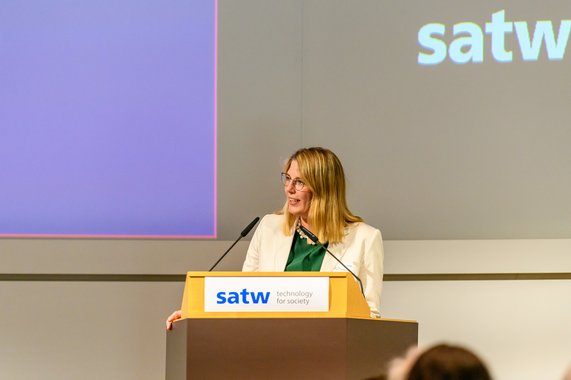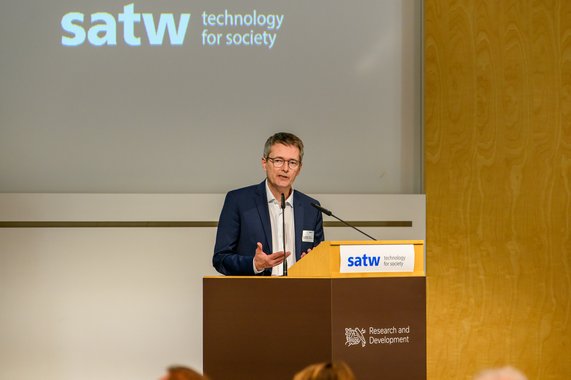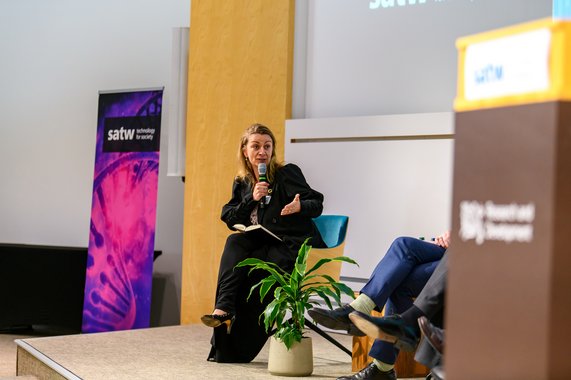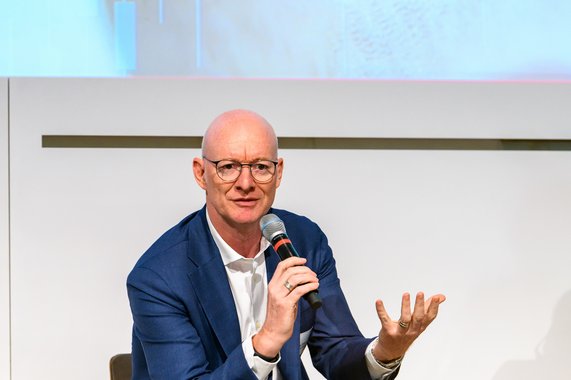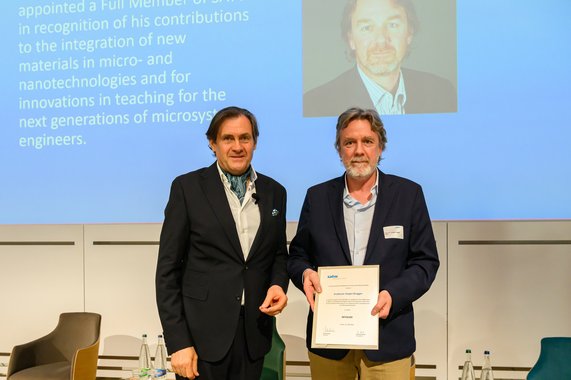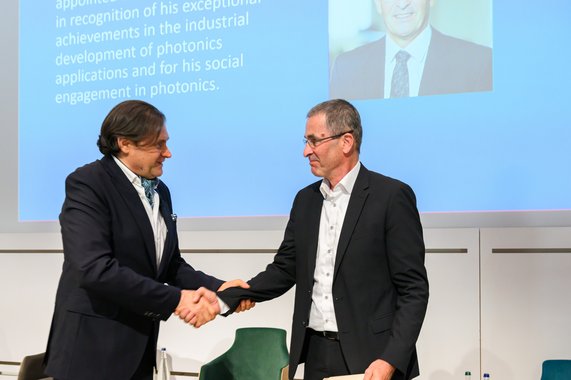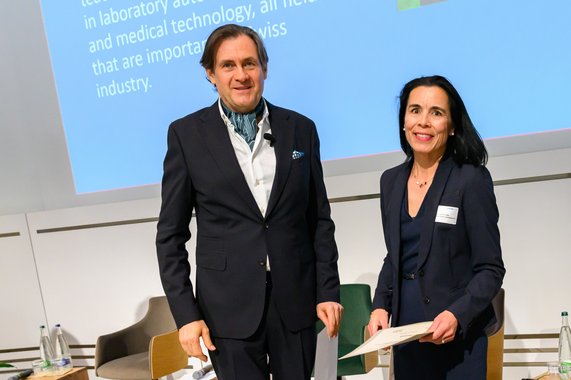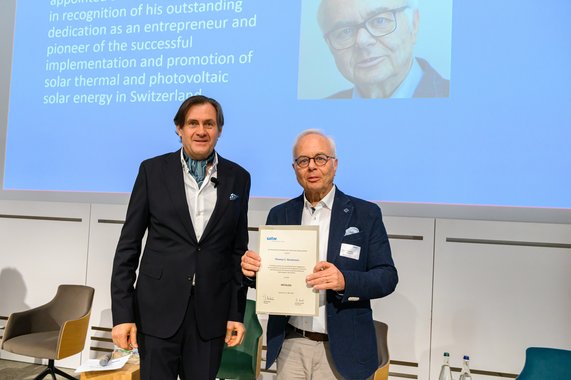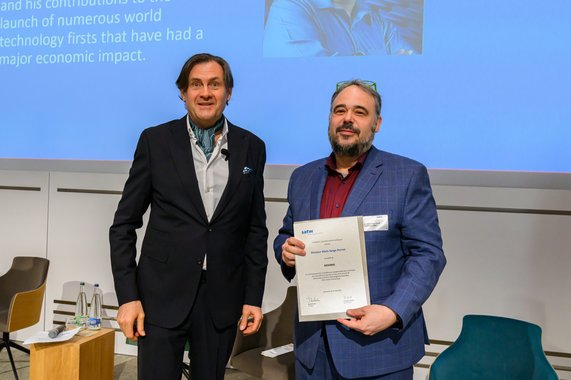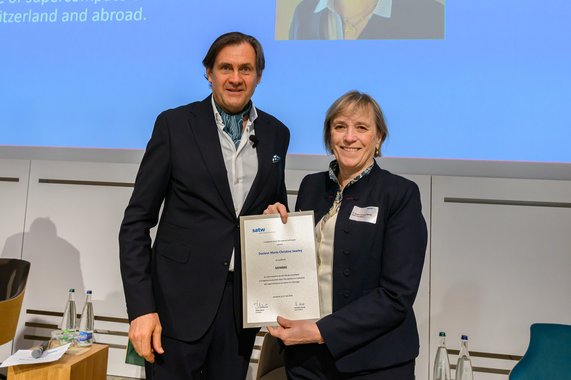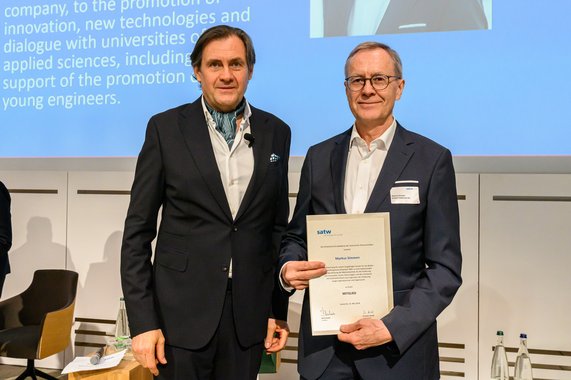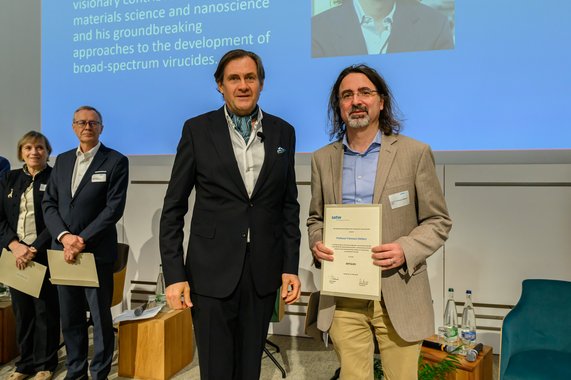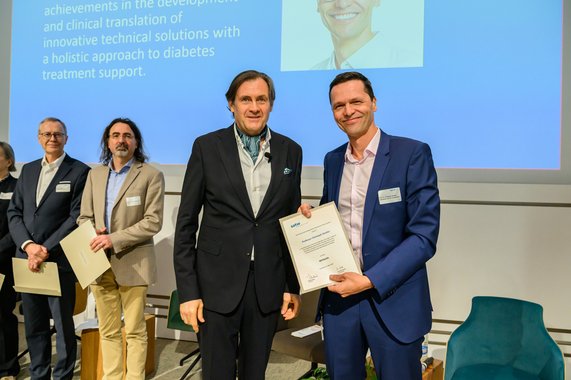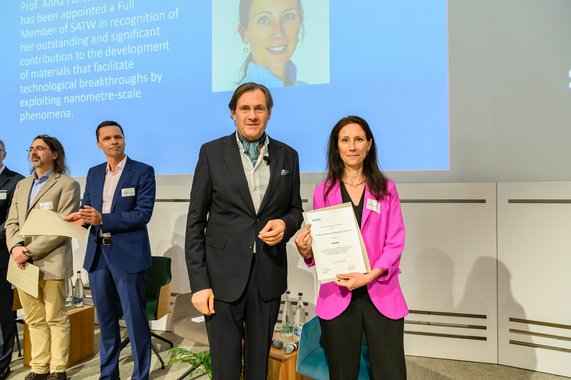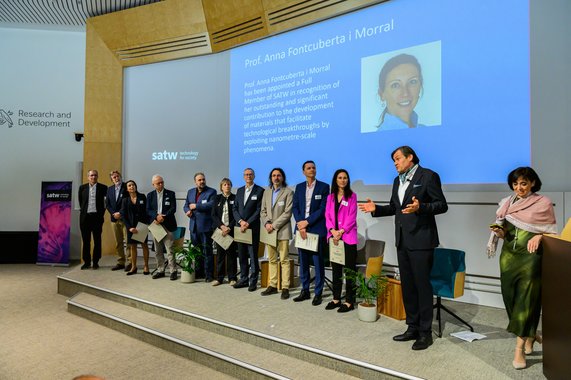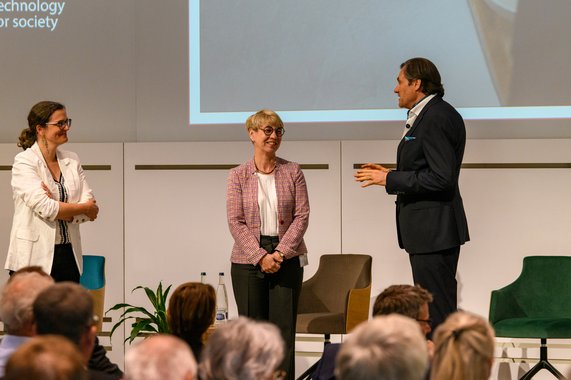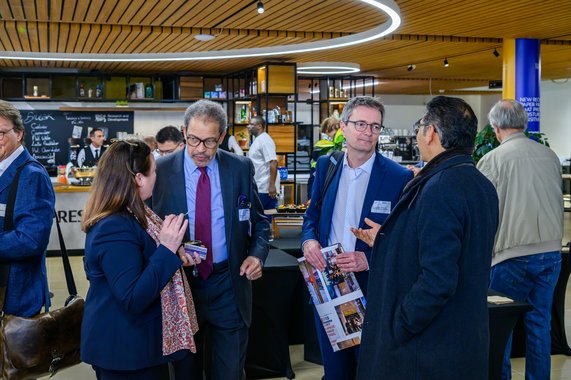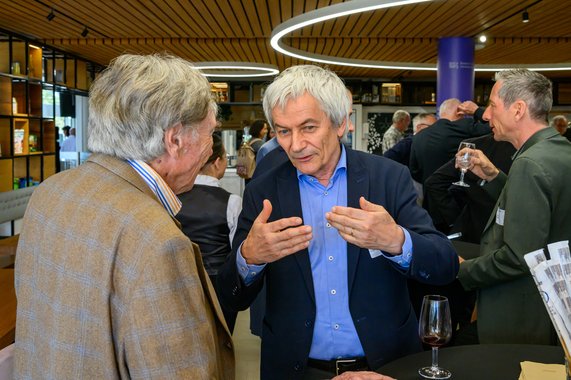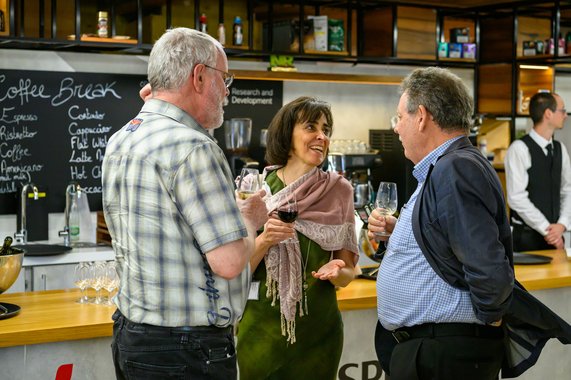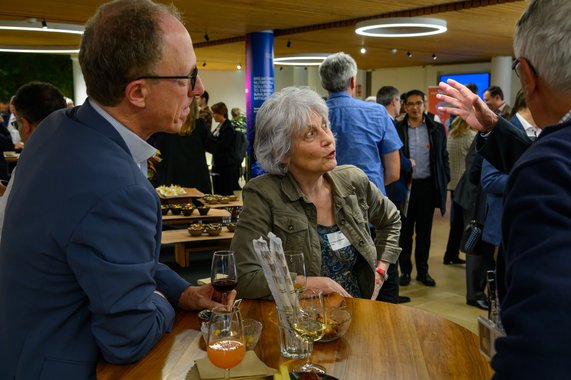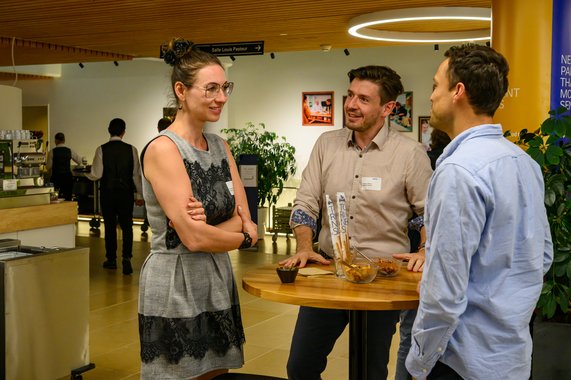What does the future of our food and vaccine safety look like? Benoit Dubuis, President of the SATW, in conversation with business journalist Michael McKay on the occasion of the annual congress.
As SATW has made the security of supply its topic of the year, the Annual Congress focused on the link between health and nutrition. It shed light on new nutrition trends and how they interface with, and benefit, medicine. In particular, the importance of technological innovations for overcoming supply bottlenecks was highlighted.
The congress opened with inputs from Federal Councillor Guy Parmelin (Head of the Federal Department of Economic Affairs, Education and Research) and Dr Mark Schneider (CEO of Nestlé). “Back in the 1860s, when Nestlé was founded, it helped fight one of the big challenges at the time: infant mortality. Today, feeding 10 billion people globally in a healthy and sustainable manner is a major challenge with a trend to ageing populations in Switzerland and globally.” Schneider observed. Nestlé, he said, aims to contribute to healthy aging with products that address the changing nutritional needs while respecting planetary boundaries. Federal Councillor Guy Parmelin emphasised the key role of SATW within the Swiss Academies network a+ in converting scientific breakthroughs into tangible benefits for Swiss society.
In the first part of the congress, the speakers analysed the significance of functional food in the context of health. Can it serve as an alternative and be used preventively, or as a complement to medication? Prof. Stefan Palzer (CTO of Nestlé), Prof. Marcel Salathé (academic co-director of the EPFL AI Center) provided valuable insights, joined by Prof. Dr. Ing. Jan Wörner (President of the German Academy of Technology, Acatech).
The notion of “you are what you eat” was exemplified by the fact that besides breathing, the oral passage is the major route into the body – and that an average human consumes no less than 65 tons of food and drink during their lifetime. On this note, Stefan Palzer emphasised the role of food in health and disease. “There is great potential to achieve national and global health goals and to address specific health issues through the right kind of diet – including functional food – for individuals,” he said. Functional food of this kind could help to bridge the gap between drugs and traditional food.
These speeches were followed by a panel discussion with Prof. Laurence Genton (Head of Clinical Nutrition at Geneva University Hospitals), Prof. Stefan Palzer (CTO of Nestlé), Prof. Marcel Salathé (academic co-director of the EPFL AI Center) and Professor emeritus Erich Windhab (ETH Zurich, Full Member of SATW). The panel focussed on the AI agents envisaged as supporting healthy food choices, while considering cultural differences and reducing food waste from field and factory to the table. The double-burden of under- and overnutrition that affects big parts of the global population shows how global food and health initiatives, led by the UN, need to improve the health of us all and that of planet Earth.
Marcel Salathé focused on another aspect of food as a complement to medicine. AI-driven epidemiological data will show what people around the globe deem to be healthy food and what the impact of this food is on their health, he explained. In the future, viable models for disease prevention could be defined using AI. Global diet monitoring through AI life coaches – e.g. in mobile phone apps that suggest meals and track eating habits – could significantly improve public health and at the same time lower health care costs. The acceptance of digital tools to personalise nutrition and enabled to track health will depend on their design, data security and trustworthiness.
In connection with the second key Annual Congress topic, the panel examined strategies to ensure the supply of food and medicine in Switzerland and globally. It also shed light on the possible courses of action for improving the sovereignty of production and rapid response to the next possible health crisis.
Prof. Patrick Aebischer (former President of EPFL and Vice-Chairman of the Board of Directors at GESDA), Dr Catharina Boehme (Assistant Director-General of External Relations and Governance at the WHO) and Dr Jean-Marc Chappuis (Deputy Director of the Federal Office for Agriculture) were joined by Christina Senn-Jakobsen (CEO of Swiss Food & Nutrition Valley) and Dr Ian Roberts (CTO Bühler Group) and focused on Switzerland’s readiness to produce vaccines to counteract the next pandemic.
Catherina Boehme stressed the importance of public-private partnerships in the various ventures to solve the problems at stake. The second panel agreed that we need to put much more emphasis on food as a means of prevention. Food and pharma seem to be quite different areas, but the benefits of each are increasingly reinforcing the other.
The formal admission ceremony for the new members concluded the SATW Annual Congress on a festive note. For 2024, SATW has elected 14 new Full Members to its network, bringing it up to a total of 375 Full Members, as well as 9 Honorary Members. They all have a considerable track record in the engineering sciences, including the newly elected President of EPFL, Anna Fontcuberta i Morral. Lively discussion ensued during the buffet reception, masterfully created by Nestlé’s R&D chefs.
